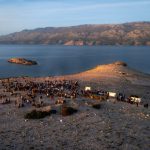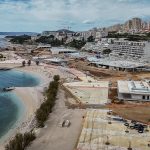ZAGREB, December 12, 2019 – A group of civil society organisations on Thursday appealed to Prime Minister Andrej Plenković for transparency during Croatia’s EU presidency in 2020 so as to contribute to legislative and lobbyist transparency in the Council of the EU.
They say European laws directly impact all Croatian citizens, that 42% of legislative acts adopted by the incumbent Croatian parliament were adopted for alignment with EU laws, that Croatia’s positions at Council of the EU meetings are not debated publicly, and that the Croatian parliament and its European affairs committee do not participate in the preparation of those positions.
With such a closed approach, the government is telling the public that the public, civil society, the media and other stakeholders have no right of insight into the positions Croatia takes at the Council, which bolsters the perception of the EU as a distant and non-transparent bureaucracy, representatives of 37 NGOs say in a letter.
“How can citizens take part in decision making and affect the positions of their own government if it keeps them secret? Unfortunately, this practice is present in a majority of European countries.”
Since the Council of the EU is the least transparent European institution because the documents under debate are often secret and there are no minutes of debates and member states’ positions are not published, the Finnish and nine other governments have supported a non-paper demanding greater legislative transparency of the Council of the EU.
“We regret that the Croatian government and another 17 members states have not joined in. Transparency is the key first step in curbing excessive corporate influence, noticeable in the Council’s many negotiations on new regulations and directives,” the letter says.
There is growing concern in civil society that the interests of certain industries, such as fossil fuels, are in such a conflict with public interest that they should be prevented from having direct access to decision makers, the NGOs say.
“Corporate sponsorship of nearly every recent Council of the EU presidency, from cars, software, non-alcoholic drinks to other corporate interests, has become the sad proof that the Council is close to big business.”
The NGOs therefore call for the Croatian presidency of the Council to become the champion of legislative transparency by backing the said non-paper.
This means the timely publication of documents important for passing laws, that meetings of the Council and preparatory bodies be open to the public via online video feeds, and the publication of minutes and national positions in order to gain as clear an insight into decision making as possible, the letter says.
More news about Croatia and the EU can be found in the Politics section.








